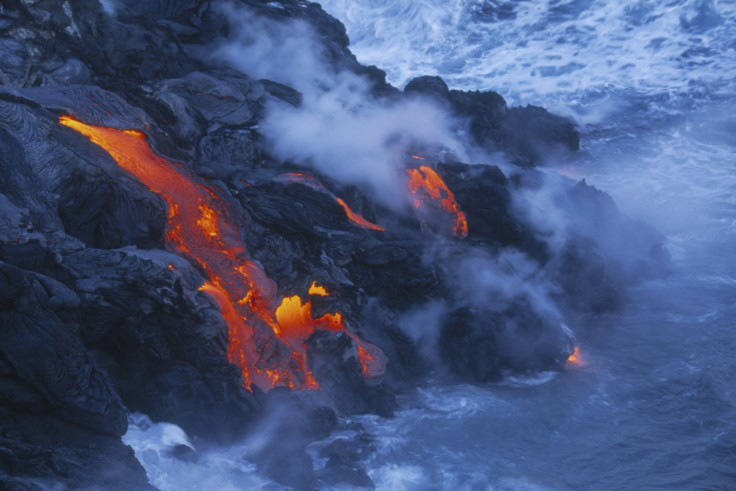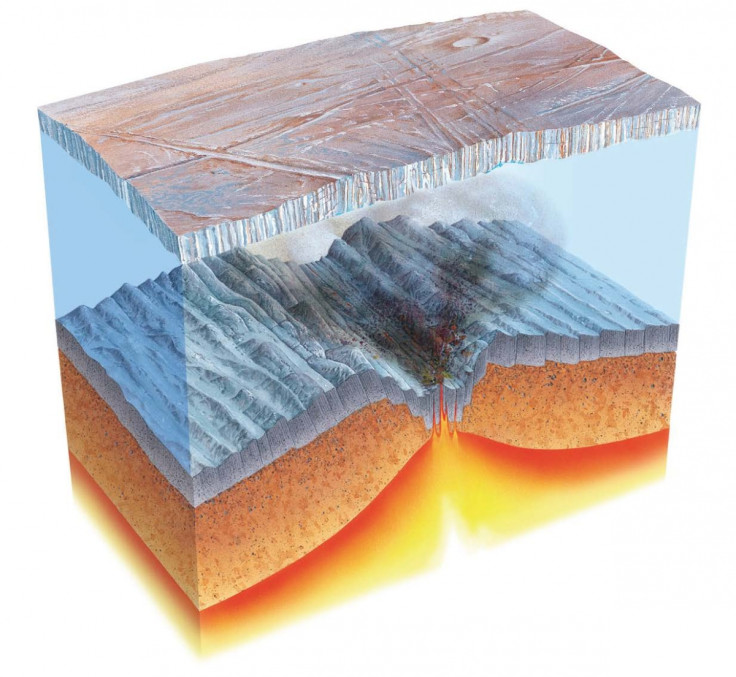Snowball Earth: Explosive underwater volcanoes turned planet from frozen waste to cradle of humanity

Violent, volatile underwater volcanoes spewed huge deposits of carbonate rock at a time when most of Earth was under ice. These layers of cap carbonate could be the evidence needed to solve the puzzle of 'Snowball Earth'.
The Snowball Earth hypothesis says that at one point in time, all – or nearly all – of Earth's surface was covered in thick ice. It suggests that the breakup of the supercontinent 'Rodinia' roughly 750 million years ago, caused large amounts of river water to rush into the oceans. This fundamentally changed the ocean chemistry to cause gigantic build-up of ice, which would go on to cover the surface of the planet.
However, this scenario does not fully explain the build-up of cap carbonates, layers of unique carbonate rocks, which would have appeared following deglaciation - assuming the hypothesis is true.
A study published in the journal Nature Geoscience has now said unstable volcanoes created these layers of deposits - possibly confirming the Snowball Earth hypothesis. These volcanoes, deep underwater, would also have caused changes in ocean chemistry around 700 million years ago, which ultimately led to rapid evolution, and thus humans to exist millions of years later.

"We calculated that, over the course of a Snowball glaciation, chemical build-up is sufficient to explain the thick cap carbonates formed at the end of the Snowball event," said Tom Gernon, lead author of the study. "This process also helps explain the unusually high oceanic phosphorus levels, thought to be the catalyst for the origin of animal life on Earth."
These volcanoes formed along tens of thousands of kilometres of mid-ocean ridges created as the tectonic plates ripped apart from each other.
The submerged volcanoes violently excreted lava into shallow waters, combining to make a glass volcanic rock known as hyaloclastite. As this rock began to build up along the ocean floor, chemicals began to change in the water surrounding it.
It is this chemical change which the researchers believe caused the build up of cap carbonates; ultimately suggesting the Snowball Earth hypothesis is scientifically accurate.
© Copyright IBTimes 2025. All rights reserved.






















